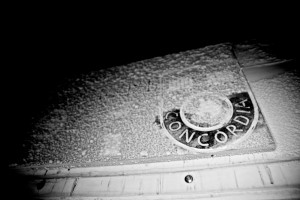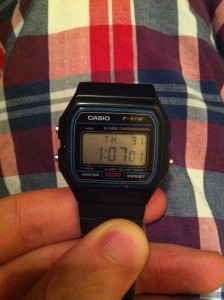Alex writes: The strangest feeling is waking up in the morning when its dark outside. You feel disorientated in time and place – even through the usual fog caused by hypoxia, it takes a few seconds longer to register where you are and more so, what time it is. I suppose this is how a bear feels when it digs its den and settles down to hibernate until spring.
Life quickly became concentrated in the base. Our master-chef Giorgio prepares breakfast, lunch and dinner at normal times keeping the station to a regular biorhythm of its own, but my saviour is my wrist watch. I bought it for only 8 euros and it has a light, alarm and stopwatch – everything you need. It has travelled with me on my wrist for almost 9 years, sailing through medical examinations, times zones, jungles, tents and even a war zone. It has outlived two pairs of walking boots and more pairs of underwear than I care to remember.
As a test of my psychology, I tried to live a couple of days without it, but I soon lost my sense of time. Hours slip away, unknowingly and insidiously into the Antarctic winter darkness. It is subtle but after a few days you realise your loss and it hits you like a freight train. In two consecutive days I went to sleep at 10.30pm on day 1 and on day 2 went to sleep at 4.30am. Down here even if you can sleep, you never feel well-rested or recovered.
In the 1960’s, Michel Siffre, a French scientist, was among the first to investigate our internal body clock. Although not well known, he is one of founders of the effects of isolation, darkness and sensory deprivation on human psychology. He spent months isolated in caves, with no natural light, freezing temperatures and damp – showing dramatic and profound effects on his body and mind.
As Michel tumbled through space and time his body clock and sleep-wake cycle shifted, ‘losing’ over 20 days in a period of 2 months spent in a cave. On his second experience he tiptoed along the cliff of sanity, nearly plummeting into a sea of madness, and was only just saved having been pulled out in time…






Discussion: one comment
Very interesting. I had heard that without a timepiece we tend to inhabit days that are approximately 20 minutes longer than common earth days. Is there any truth to this? It correlates beautifully with the length of a Martian day. Perhaps our internal body-clock is Martian.